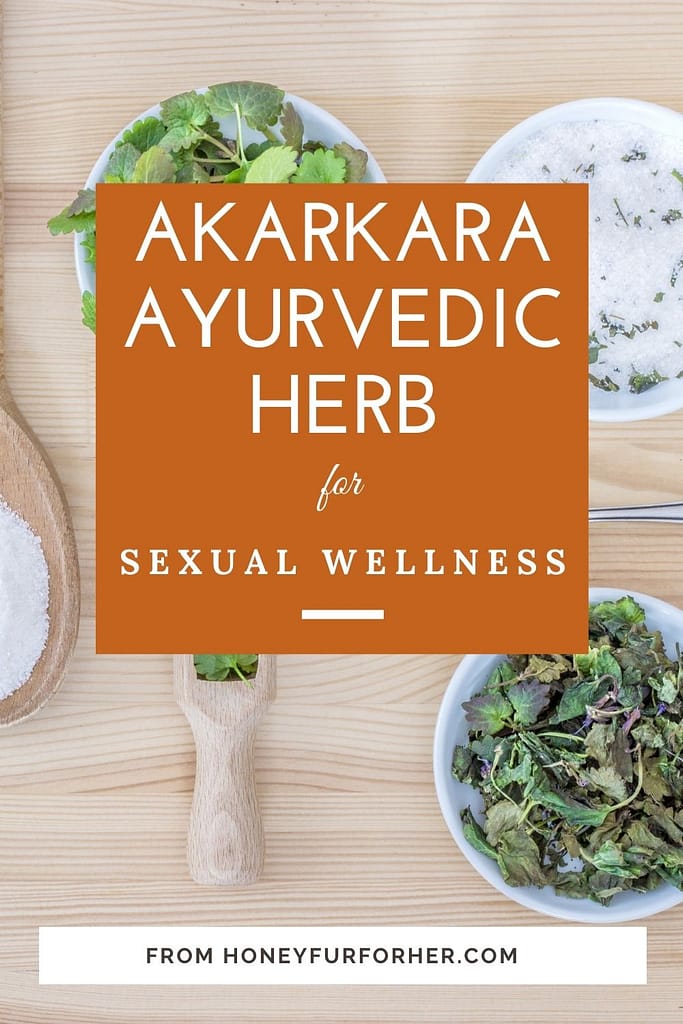
Akarkara is a herbal plant that has been in use since the 12th century. It was first mentioned by the renowned Vaidh, Sodhal in his work “Sodhal Nighantu” as Alaka which, for all intents and purposes, details useful medicinal plants readily available to us.
Known by a plethora of names, Anacyclus Pyrethrum (Scientific name), Akallaka (Sanskrit name), and Pellitory Root / Spanish Chamomile (English name), this herbal plant has been in use in ancient traditional medicinal systems since time immemorial.
In terms of its appearance, the Akarkara tree resembles the Chamomile plant and is native to the Himalayas (India), North Africa, Mediterranean regions, and Arabian countries. No surprises there as all these areas, particularly the Himalayan region is a powerhouse of nature’s best Ayurvedic bounty known to man.
“The great thing about Ayurveda is that its treatment always yields side benefits, not side effects.” ― Shubhra Krishan
Did You Know?
This plant has been listed under the “IUCN Red List” for vulnerable species.
Akarkara Herb’s Physical Characteristics
- It comes with a subtle aroma.
- It has an astringent and pungent taste.
Akarkara’s All-Round Uses: An Overview
Belonging to the Asteraceae family, the Akarkara plant is a perennial species and is bushy, hairy in nature. The Akarkara root is primarily used to address a whole spectrum of medical issues as it contains useful Alkaloids (Pellitorin) and Alkyl Amides which come with libido-enhancing and neuroprotective properties. Plus, its dust-coloured bark and bright-yellow flowers are also used to treat various health issues.
Ayurvedic Formulations of Akarkara:
- Akarkara Churna
- Akarkarabhadi Churna
- Akarkara Oil
- Akarkarabhadi Vati
- Akarkaradi Guggul
- Jatiphaladi Vati
How to Use Akarkara: Nutritional Information & Recommended Dosage
Recommended Dose:
- You can take 1-2 gm of Akarkara root powder once a day.
- You can take 125-150 mg of extract of Akarkara root twice a day.
- In the decoction form, you can take 3 gm of Akarkara root powder mixed in 100 ml of water and consume once a day.
- Or, 10-20 ml of Akarkara juice is considered safe.
- In terms of the flowers, 1-2 gm of Akarkara flowers is considered safe.
Make sure not to exceed this amount and remember that it is best consumed in the powder form. Also, please consult your doctor before consuming this herb in any form.
A Fair Warning: On chewing, it offers a tingling sensation on the tongue.
Akarkara’s All-Powerful Benefits: At A Glance
Akarkara helps to treat cases of gout, sciatica, lethargy,
constipation, malaria, chronic rheumatism, worms, etc. In addition to these, it doubles up as:
A Powerful Aphrodisiac (Shukrastambhaka)
Akarkara is a virility-enhancing herb and acts as a libido stimulant. These spermatogenic properties enable it to promote sexual wellness in men, treat impotency caused due to weakened nerves, offer greater physical strength and enhance sexual performance, etc. In fact, Akarkara is one of the primary ingredients in many aphrodisiac oils that are prepared in the Unani system of medicine as the alkaloid in its roots helps to boost testosterone production, stimulate desire, and circulate blood in the male genitals.
A NervineTonic
In cases of nerve weakness and hemiplegia, Akarkara is often used in combination with Mahua oil to massage the affected area and offer relief. It also helps to treat facial paralysis.
An Oral Tonic
Whether it’s dental caries, toothache, or tonsilitis, Akarkara root’s decoction is used for gargling and alleviating any discomfort. Plus, it is also used for treating mouth issues such as tongue paralysis, dry mouth, etc. In fact, it is used to make pyrethrum vinegar, an oral mouthwash for toothache.
A Cold Reliever
Akarkara comes with analgesic properties and is applied externally in cases of common cold, nasal congestion, and flu-like symptoms.
An Effective Diuretic
It helps to increase the urination frequency and flushes out all the toxins from the body.
A Brain Enhancer And A Carminative
It helps to maintain the nervous system health and treat nervous disorders. Plus, it reduces flatulence and helps to get rid of intestinal gas.
Did You Know?
It is used as a vegetable and pickle in Maharashtrian cuisine.
Akarkara Multi-Dimensional Uses & Remedies

Akarkara offers a multitude of benefits. Here are some home remedies you can try to get rid of a variety of health concerns such as:
Curing Headache/Migraine
Suggested Remedy: Acharya Balkrishna suggests you make a paste out of Akarkara root/flowers (in the powder form) and water and apply it topically on your forehead. Or, you can also use this liquid paste and put 4 drops in each nostril for relief.
Treating Epilepsy
Suggested Remedy: Take less than 1 gm of Akarkara powder and mix it with Vacha (Calamus) powder and consume. Or, you can take 500 mg of Akarkara root powder, 1000 mg of shankhpushpi powder, 250 mg of mastic gum, and 1 teaspoon of honey. You can take this mixture, twice daily for 4 weeks.
Treating Premature Ejaculation
Suggested Remedy: You can take 1 Akarkara capsule with a glass of milk to prevent premature ejaculation and improve libido in men.
Strengthening Sexual Performance
Suggested remedy: You can take Akarkara (500 mg), Ashwagandha (1000 mg), Kesar (100 mg), clove (100 mg), long pepper (100 mg), dalchini (100 mg), javitri (100 mg), jaiphal (25 mg), along with warm milk twice a day.
Addressing Throat Related Issues (Hoarseness Of Voice):
Suggested Remedy: You can take 4-5 Akarkara flowers, 3-4 mango and Jamun leaves (in the ground form), and boil it in a glass of water. Then, gargle with this decoction to alleviate any kind of throat issues.
Removing Bad Mouth Odour
Suggested remedy: You can simply chew 1 Akarkara flower and spit it out. Or, you can use its leaves and flowers (collectively called panchaang), and boil it in water. Drink this kadha (decoction) or gargle with it to get rid of bad mouth smell.
Treating Toothache
Suggested Remedy: You can massage your tooth with a DIY tooth powder that’s made from 10 gm Akarkara root/flower in the powder form, 2 gm of camphor in the powder form, and 1 gm of rock salt. Mix all these together and brush your teeth to get immediate relief. Plus, it is also used in combination with Vidanga, black pepper, and ajwain khurasani to treat toothache. For the latter, please consult your physician for understanding the correct dosage.
Treating Heart Related Issues (Angina Pain / High Heartbeat Rate)
Suggested Remedy: Take 10 gm of Arjuna bark’s powder and add 1-2 gm of Akarkara flower to it. Boil these two ingredients in water till it reduces to a fourth of the quantity. Strain and drink.
Treating Stomach Issues (Weak Digestive System)
Suggested Remedy: Take 2-3 Akarkara flowers, 1-2 gm Kulanjan powder, and 4-5 gm Arjuna bark’s powder, and add to around 200 ml of water. Boil this decoction till it reduces to a cup’s quantity, strain and then drink it on an empty stomach every morning.
Treating Hiccups
Suggested Remedy: Take 1 Akarkara flower and keep chewing for some time. Then spit it out. Or, you can take 1/2 gm of Akarkara root powder and add honey to it, and consume 2 times a day for relief.
Treating Asthma / Cold / Shortness Of Breath
Suggested Remedy: To treat shortness of breath, take 1-2 gm Akarkara’s flowers and grind to a powder. Filter this powder with a cloth and smell it at the time of shortness of breath to get immediate relief.
Treating Menstrual Pain
Suggested Remedy: Take 1gm of Akarkara root powder and make a decoction of it (about 10 ml per serving). Then, add a pinch of hing (Asafoetida) to it and consume twice a day.
Enhancing Memory
Suggested Remedy: You can take Akarkara powder and Brahmi powder in equal quantities (half a teaspoon or1 gm each) and consume daily.
Akarkara’s Side-Effects & Precautionary Measures
Akarkara root powder, if taken in excess amounts, can lead to:
- Nausea
- Excessive salivation
- Mouth ulcers
- Acidity
- Increased heart rate, heartburn
- Unconsciousness
- Akarkara should not be consumed if you suffer from gastritis, ulcer, acidity and inflammatory bowel syndrome.
- It should not be used continuously for over a period of 4 weeks.
- Pregnant and lactating mothers should avoid it altogether.
Important: Please consult your doctor to understand the right dosage for you based on your medical record, lifestyle, body type, etc. Under no circumstances should you self-prescribe this herbal medicine.
Did you find this post useful? Would you like to get back to it later? Save THIS PIN below to your Pinterest Natural Living or Ayurveda board!


Thanks Swati for the detailed introduction and about your courses. Are any courses from Kerala Ayurveda Academy available on line?
Mohammad Ejaz
[email protected]
Hi Mohammad,
You can go check out their website online. There are a few that frequently keep happening in new batches.
Regards,
Swati